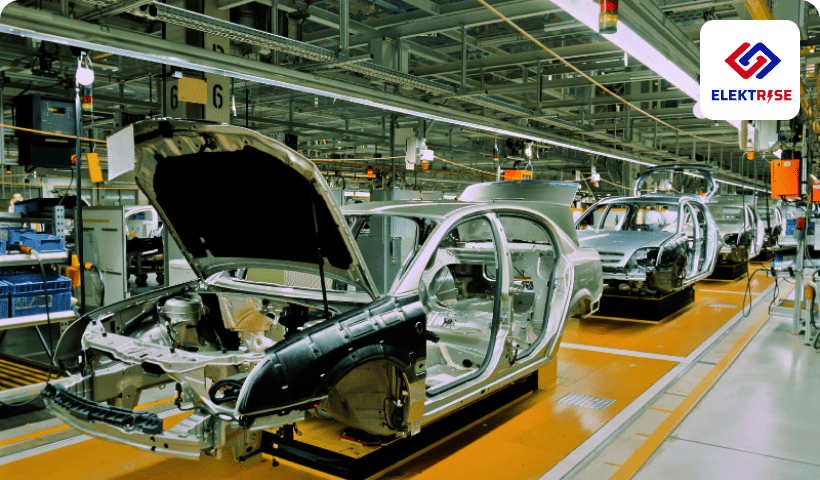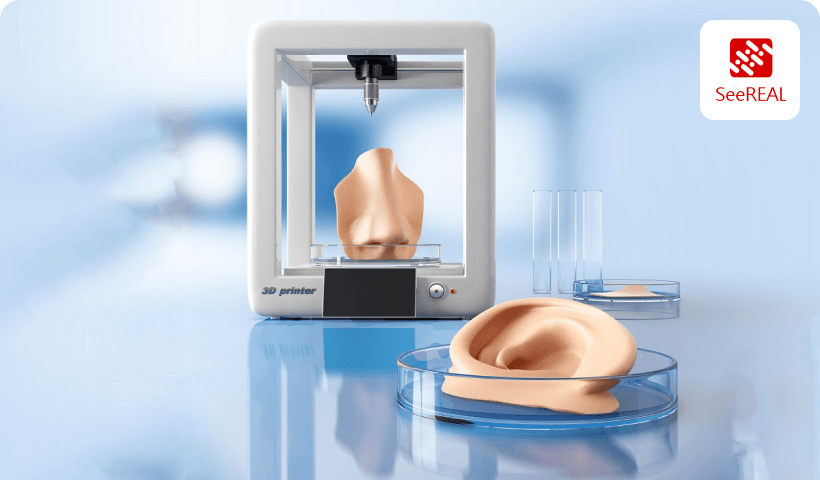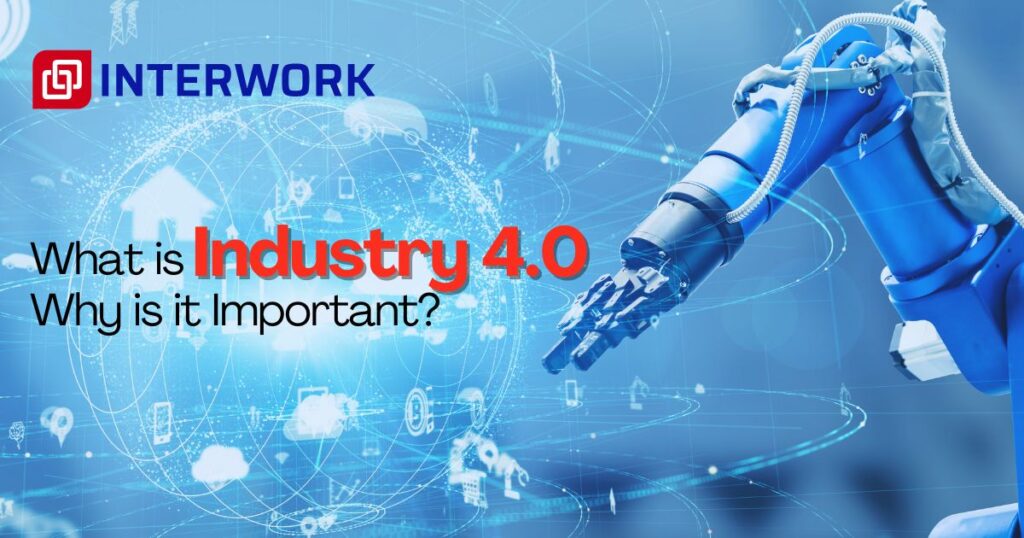How IoT and 5G Are Shaping Automotive Technology
The car manufacturing sector is altering the major trend in…
Technology partner helping businesses innovate and drive digital transformation
We understand your business better than anybody else, thanks to our domain consultants. Together with the technology experts, these domain consultants bring in years of experience to help you navigate through your technical and business challenges.
Interwork’s exclusive product approach is the cornerstone for all software engineering services that help build and design digital products using industry standards and enterprise agility frameworks. Our product strategy and management solutions, cross-channel mobile apps, DevOps transformation, and agile practices help businesses team up with us.
Embracing digital technology has never been more critical. In an era where technology is breaking down age-old barriers, businesses must create digital experiences that are consistent and connected. Our Nexgen services will enable you to win your customers’ and employees’ loyalty and trust in an environment of digital information proliferation.
Businesses can get an integrated environment with IoT, business processes, and IT consulting. Digital solutions help increase efficiency and simplify operations. Our role as a digital solution provider is to provide customers with bespoke digital experiences that enhance customer retention and open up new business prospects. At Interwork, we deliver cutting-edge services to businesses using the latest tech.
No matter where your apps exist, whether your own servers, third-party clouds, or a mix of both, we’re your one-stop cloud service provider. We can help you upgrade and migrate your apps without a hitch. As part of our cloud services, we make it easy for you to move to the cloud of your choice and keep your apps running smoothly.
Power Your Business with Scalable, Secure & Smart IT Infrastructure Solutions.
In today’s fast-evolving digital landscape, your IT infrastructure should do more than just function it should fuel innovation, safeguard operations, and drive sustainable growth. At Interwork, we empower businesses with next-generation Managed IT Infrastructure Services that ensure 24/7 reliability, advanced security, and seamless scalability.
Whether you’re a growing startup or an established enterprise, our tailored solutions are designed to reduce overhead, eliminate downtime, and accelerate transformation all while keeping your business future-ready.
You can create an omnichannel experience by connecting all your touchpoints, devices, and channels. Interwork’s strategy and UX team use the latest technology tools to develop intuitive and specific solutions for each client. A good UX design involves collaboration and iteration. We aim to make digital experiences fun and useful for clients and users.
Interwork’s end-to-end quality assurance and testing services helps enterprises manage an increasingly complex technology landscape through various solutions. Our quality assurance practices have enabled global enterprises to gain consistency, improve productivity, lower costs, and boost profits. With the help of our quality assurance frameworks, practices, and solutions, we help our clients mitigate technical and business risks.
Interwork believes that providing the target audience with a superior product or service will positively impact them. Therefore, Interwork helps startups refine their product ideas. We use technology-driven accelerators, business models, skilled resources, standardized processes, and profound experience to help startups visualize, conceptualize and execute their business requirements, turning them into profitable ventures.
No matter how well you care for your software, technical errors, system failures, faults will always occur. When that happens, don’t let it sabotage your productivity or impact your business. Reach out to us, with Interwork’s help desk and operations support offerings, we walk that extra mile to make sure your business runs 24X7.
You need the right team and the right skill set for your project to succeed. With Interwork’s IT Staffing Services, you can hire qualified and experienced resources quickly ramp up your application development initiatives. Whether you need a prototype or a full-scale enterprise app, we’ve covered you.
Interwork’s exclusive product approach is the cornerstone for all software engineering services that help build and design digital products using industry standards and enterprise agility frameworks. Our product strategy and management solutions, cross-channel mobile apps, DevOps transformation, and agile practices help businesses team up with us.
Embracing digital technology has never been more critical. In an era where technology is breaking down age-old barriers, businesses must create digital experiences that are consistent and connected. Our Nexgen services will enable you to win your customers’ and employees’ loyalty and trust in an environment of digital information proliferation.
Businesses can get an integrated environment with IoT, business processes, and IT consulting. Digital solutions help increase efficiency and simplify operations. Our role as a digital solution provider is to provide customers with bespoke digital experiences that enhance customer retention and open up new business prospects. At Interwork, we deliver cutting-edge services to businesses using the latest tech.
No matter where your apps exist, whether your own servers, third-party clouds, or a mix of both, we’re your one-stop cloud service provider. We can help you upgrade and migrate your apps without a hitch. As part of our cloud services, we make it easy for you to move to the cloud of your choice and keep your apps running smoothly.
Power Your Business with Scalable, Secure & Smart IT Infrastructure Solutions.
In today’s fast-evolving digital landscape, your IT infrastructure should do more than just function it should fuel innovation, safeguard operations, and drive sustainable growth. At Interwork, we empower businesses with next-generation Managed IT Infrastructure Services that ensure 24/7 reliability, advanced security, and seamless scalability.
Whether you’re a growing startup or an established enterprise, our tailored solutions are designed to reduce overhead, eliminate downtime, and accelerate transformation all while keeping your business future-ready.
You can create an omnichannel experience by connecting all your touchpoints, devices, and channels. Interwork’s strategy and UX team use the latest technology tools to develop intuitive and specific solutions for each client. A good UX design involves collaboration and iteration. We aim to make digital experiences fun and useful for clients and users.
Interwork’s end-to-end quality assurance and testing services helps enterprises manage an increasingly complex technology landscape through various solutions. Our quality assurance practices have enabled global enterprises to gain consistency, improve productivity, lower costs, and boost profits. With the help of our quality assurance frameworks, practices, and solutions, we help our clients mitigate technical and business risks.
Interwork believes that providing the target audience with a superior product or service will positively impact them. Therefore, Interwork helps startups refine their product ideas. We use technology-driven accelerators, business models, skilled resources, standardized processes, and profound experience to help startups visualize, conceptualize and execute their business requirements, turning them into profitable ventures.
No matter how well you care for your software, technical errors, system failures, faults will always occur. When that happens, don’t let it sabotage your productivity or impact your business. Reach out to us, with Interwork’s help desk and operations support offerings, we walk that extra mile to make sure your business runs 24X7.
You need the right team and the right skill set for your project to succeed. With Interwork’s IT Staffing Services, you can hire qualified and experienced resources quickly ramp up your application development initiatives. Whether you need a prototype or a full-scale enterprise app, we’ve covered you.



The car manufacturing sector is altering the major trend in…
In today’s rapidly evolving business environment, staying competitive means embracing…
The transportation industry is in a time of great change,…
Businesses in the ever-evolving digital age are choosing between adapting…

In the age of rapid technological advancement, the term “Industry 4.0” has become increasingly prevalent, signifying a new era of industrial innovation and transformation. Often referred to as the Fourth Industrial Revolution, Industry 4.0 represents a change in basic assumptions in the way we conceptualize and approach manufacturing processes, driven by the convergence of digital technologies, data analytics, and automation.
Industry 4.0 centers on interconnectedness, linking every component in the manufacturing ecosystem through sensors, devices, and software systems. Some key components and technologies driving Industry 4.0 include:
The Fourth Industrial Revolution brings forth profound implications for businesses across industries and society as a whole: